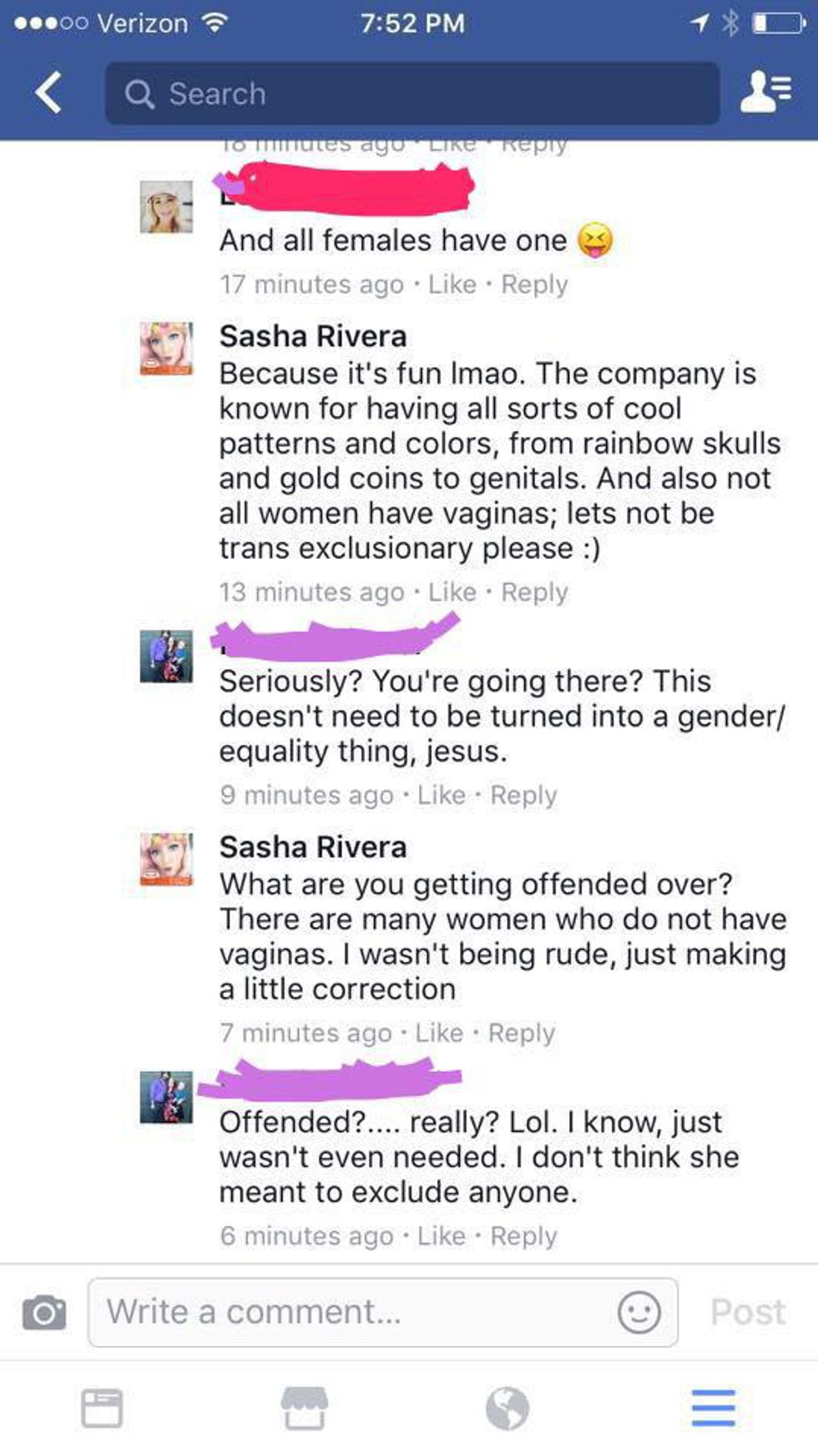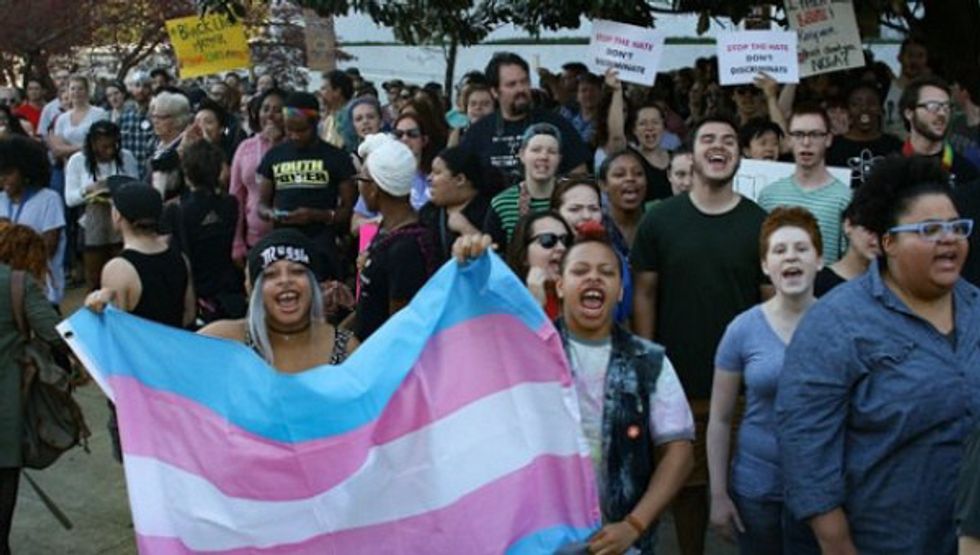I am part of a Facebook group called Makeup Addicts, which generally just has positive posts about makeup looks and brands. Recently, I decided to post a photo of a highlighter, with a print of a vulva on it, which I bought from Bitchslap Cosmetics. I wanted to share the company and I thought that the other members would find its products entertaining. One commenter asked why the vaginal print was necessary, and then another reply (red) followed with “And all females have one!” This led me to respond that not all women have vaginas, and I politely requested the use of trans-inclusive language.
Suddenly, someone else (purple) commented; she was angry that I was making everything about gender equality and said that it was not even necessary since the other girl had not meant to be trans-exclusive. Needless to say that I was surprised; after all, I had in no way attacked the other commenter and had only made a small correction. I understand that she had not meant to be trans-exclusive; after all, not everyone has transgender and nonbinary people in their lives, so they might not be accustomed to using language that isn’t cis-normative. This led to me having to explain that my response was not meant as an attack, and that it was necessary because making these corrections will only further encourage others to be more aware and use trans-inclusive language (the latter part was stated in another comment following the ones pictured). The original commenter, who had said that all women had vaginas, removed that specific comment within minutes.
tw: transphobia
While the fact that gender and biological sex exist on a spectrum has been around in academia for a long time, the topic seems to have made its way into colloquial discussions only within the last few years. Therefore, cisgender people are still considered the norm, and the gender binary continues to dominate most conversations. However, because transgender and nonbinary folk are gaining more visibility in the media, more people are becoming aware of using trans-inclusive language, and are starting to realize that genitals do not determine gender. Unfortunately, there is still a long way to go, especially since there are still people who believe that genders which go against the binary are simply a trend or are “evil SJW” propaganda by millennial liberals.
“When I hear language like that I personally feel so out of place, like I’m abnormal. It hurts when people can’t take one second of their lives to recognize that non cis people exist. It may not seem like such a big deal, but on a day when I’m really struggling, a comment like that could really do some serious damage,” said a nonbinary Scripps College student, who wanted to remain anonymous, on non-inclusive language.
Non-cisgender people face a lot of discrimination, whether via violent attacks or macroaggressions like misgendering. We live in a world where many people are prejudiced and still do not accept alternate gender identities, as seen with North Carolina’s House Bill 2, the Public Facilities Privacy & Security Act, which bans protection from discrimination for LGBTQ+ people. It also forces people to use the bathroom based on their assigned sex at birth. Moreover, California is the only state to have outlawed the “gay/trans panic” excuse that reduces murder sentences. This oppression has very negative effects on the mental health of transgender folk. According to the Centers for Disease Control and Prevention, LGBTQ+ youth, especially trans youth, are at an increased risk of suicide. In a study of minority stress theory, the 44.1 percent of transgender participants showed signs of clinical depression and 33.2 percent showed symptoms of anxiety, in comparison to the cisgender participants. Using more trans-inclusive language can promote more acceptance of non-cisgender identities and help reduce some of the discrimination.
“[Using trans-inclusive language is] the easiest way to show support for trans people. Like, just to acknowledge the fact that trans people exist and that they deserve respect and inclusion just as much as any minority. It's also something that really does effect trans people. We don't always know what places are safe or who we can trust. By using trans-inclusive language that's an easy way of saying ‘hey I'm an ally’ basically. In many cases it isn't even that difficult, like using ‘they’ instead of ‘she or he,’” said Elliot Joyce, a transgender student at Pitzer College.
Language constantly changes and evolves. Therefore, why not allow a change that promotes respect and acceptance? Using gender-neutral, inclusive language is not a huge challenge. With a bit of practice and a positive mindset, you can help make the world a little bit safer for non-cisgender folk.













































